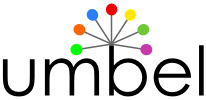I am pleased to finally be able to say that Mike Bergman is the new Chief Executive Officer of Zitgist LLC. After months of discussions, hard work, planning and development, Mike became officially the new CEO and Zitgist made a giant leap ahead.
The first contact
The first time I started to collaborate with Mike was related to the UMBEL project. Mike had an idea and I wanted to help him to make it real. At that time I didn’t know that my participation in UMBEL and my collaboration with Mike would impact Zitgist forever.
Months later I released a new prototype project called zLinks. This project has been the tipping point of my collaboration with Mike. However, even at that time, I didn’t know how these two projects would change Zitgist forever.
Those first months were a warm-up session for Mike and me. Everything started from there; we were ready to work together.
Working together
Since that time we have worked together to forge Zitgist, to shape it to Kingsley‘s, Mike’s and my vision. The process hasn’t always been easy. Each day brings its challenges, opportunities and work. We spent months to talk about Zitgist’s vision, voice, goals and direction.
Considering Zitgist’s business, people could think that everything was related to technologies, high-tech research and development. But today I would say that those things are nearly secondary. It is sure that activities, services and products are at the center of our discussions; however, we found that the center of everything was: communication.
Communication
Mike lives in Iowa, Kingsley in Boston, me in Quebec City. The three of us have different cultures, different native languages, and live in different places.
On the other hand, Zitgist is a company that gives services and creates products to help people and businesses interlink their data: to make real the value of the global data assets. We try to make data easier to communicate, publish and share.
We belong to the semantic web community. We talk and collaborate with people from around the World: with different cultures and languages. We talk about a domain (the semantic web) that is not yet fully defined and that is still highly academic. We are still juggling with concepts and terminology that we try to share with the community and people from outside this community.
Given that, all challenges can be captured in one word: communication.
We have to communicate our ideas and vision; we have to sell our services and products; we have to make data richer and easier to use and understand; we have to create a vision, a voice and a language. So yes, this is all about communication. But even more: it is all about human communication; communicating to people and companies in different languages with different cultures.
We understand one aspect of the semantic web vision as machines talking to machines. But Zitgist’s challenge is to talk with people.
Mike is now the new orchestrator of Zitgist; it is time for us to communicate our voice to the World.
A new Zitgist
This process forged Zitgist. All the discussions we had, all the ideas we challenged and all the ways we experimented to speak with the outside World forged Zitgist’s vision and voice. The time we put into making Mike the new CEO completely changed Zitgist’s dynamic. We were not just talking about hiring someone; we were talking about growing up a business and achieving a shared vision and voice. Once more, it was about communicating ideas, concepts and vision.
It is all about communication.
Thanks for joining us, Mike.
More references about this news
The official press release
Mike’s personal perspective
